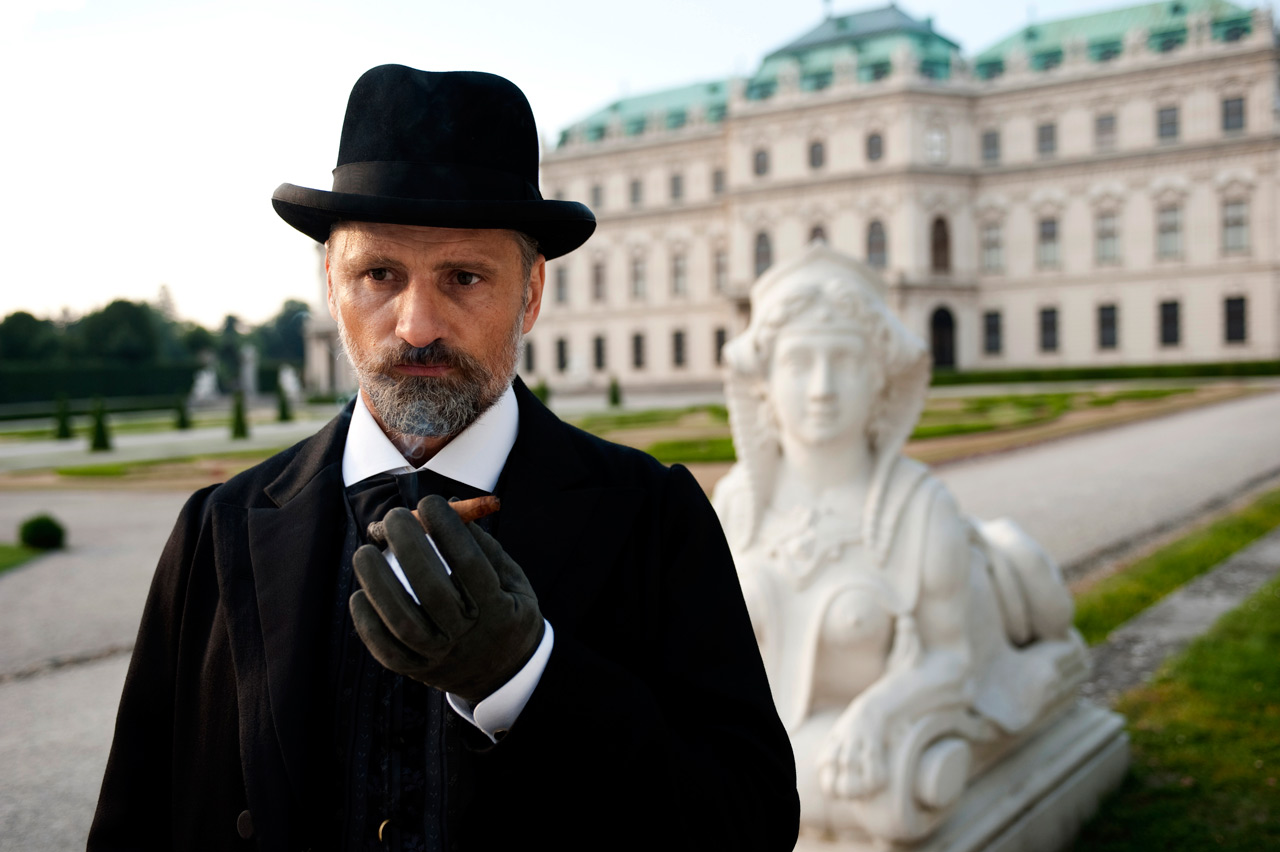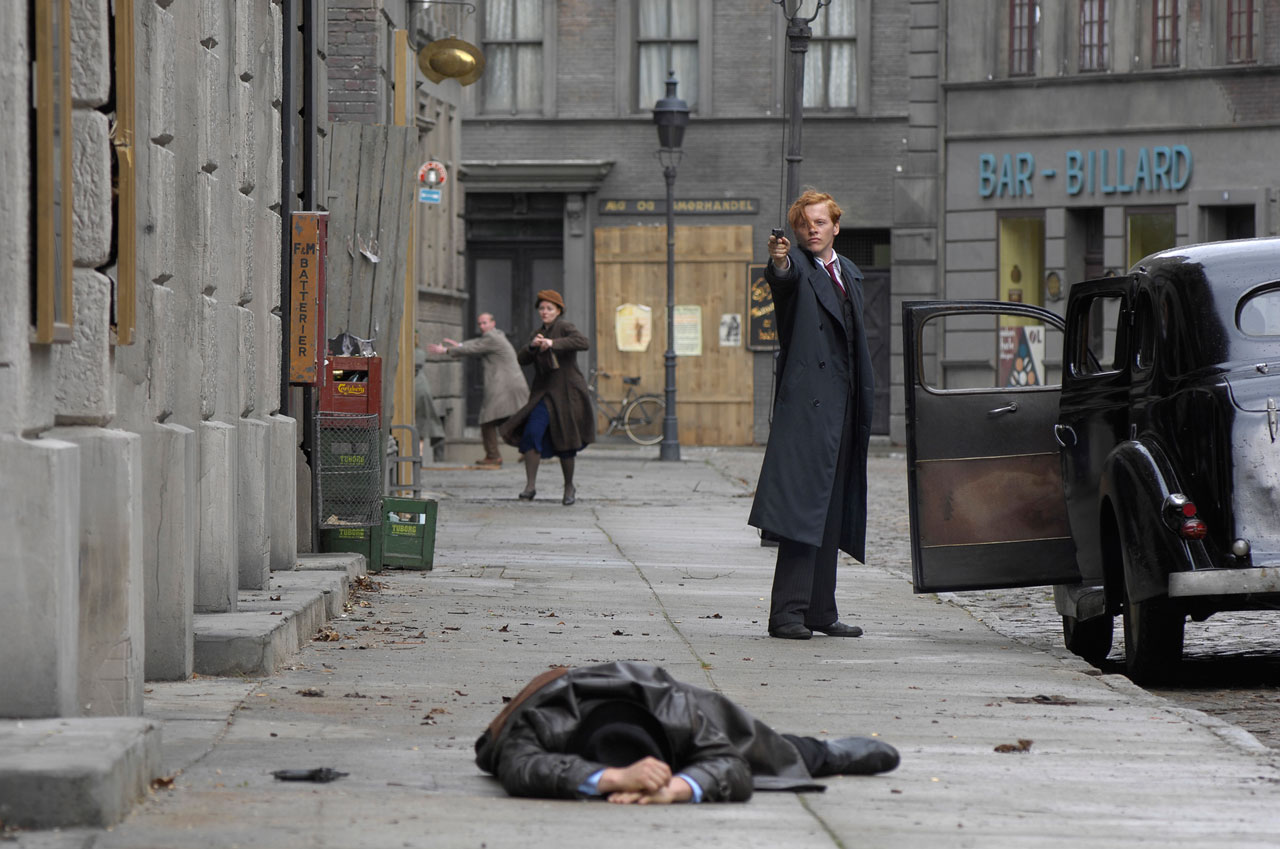Atonement

Half of Atonement is a great
tragic romance set on a sizable English estate on the eve of World War II. Poor
little rich girl Cecilia Tannis (Keira Knightley, lean of body and full of lip)
briefly consummates a love affair with sweet-faced son-of-a-groundskeeper
Robbie Turner (James McAvoy, coming on as a cross between Brendan Fraser and a
more boyish Russell Crowe) as Briony, Cecilia's teenaged sister (Saoirse Ronan, with
pinched, choirgirlesque good looks) watches, appalled and uncomprehending. The
other half of Atonement comprises a highly routine men-at-war effort that follows a
trio of soldiers trying to make their way out of occupied France during the
Dunkirk evacuation as well as narrative bits showing the Tallis sisters
(Briony is now played by Romola Garai), now nurses, tending to wounded soldiers.
By then, I was already missing Cecilia, but the problem is compounded as we leave Robbie, too -- he's asleep on the floor awaiting the next morning's rescue operations -- and alight again on Briony, whose story Atonement has become -- because the girlish Briony's fruitful imagination and sense of righteousness culminated in the telling of a terrible lie that separated Cecilia and Robbie, she's now doing penance by caring for the casualties of a war that she essentially condemned Robbie to fight. (It's complicated.) Screenwriter Christopher Hampton has conveyed Briony's character arc effectively enough -- a head nurse reprimands Nurse Tallis for sharing her full name with a patient, declaring "There is no Briony" -- foregrounding the character's helpless sense of guilt and her desire to find some way to atone for her actions. But the misery on screen is ultimately as arbitrary and familiar as Robbie's wartime drama. (When a heavily bandaged soldier asks Briony if she might not mind rewrapping his wounded head, is there any doubt the loosened dressing will reveal a gaping hole in his skull?)
It's at about this point that Briony essentially becomes the story's narrator, a strategy that must make more sense in literature than in the cinema, where working in anything but the omniscient third person becomes somewhat tricky business due in part to the specifically third-person nature of camerawork itself. Atonement ends up doling out its emotional climax twice: first in a scene where Briony finally confronts Cecilia and Robbie both, begging their forgiveness and seeking to make things right; and then again in a dramatic flash-forward to an aged Briony (Vanessa Redgrave), giving a television interview on the occasion of her autobiographical 21st published novel -- the story of which, we learn, is the movie that we've been watching. There's a bit of trickery here that must have worked better on paper, where McEwan had a chance to massage his language and distract the reader from certain suspicious elisions in the narrative until the time came for the big reveal. On film, the gambit is at first only confusing, but as the story comes to a close it's downright disorienting -- an intellectual understanding of the story is clarified at the expense of any emotional connection to the characters on screen, who are suddenly reduced in stature to secondary creations.
The idea, I think, is that the intellectual becomes the emotional -- that only now that the crushing, despairing guilt Briony lived with into old age can be imagined does the interior horror of the story become apparent -- but what happens instead is oddly distancing. The film's final image is a picture-postcard shot that should become devastating, but instead seems only emblematic of a story that's been spun out into layers of abstraction. I missed Cecilia and Robbie both; walking out of the theater, I felt that their story had been taken away from me and another substituted in its place. It's an odd feeling for a movie to leave you with -- and not an unchallenging one -- but it's not remotely satisfying. B-
Update: I realize that I worked so hard at articulating what didn't work that I forgot to enumerate the many things that Atonement does right, at least in its first 45 minutes or so. James McAvoy has a great, gentle face and soulful eyes that make you root for his happiness. (I liked him much better in this than in The Last King of Scotland, where he was hobbled by having to play second fiddle to a scenery-chewing actor playing a much more interesting character.) I'm not entirely sold on Keira Knightley as a world-class thespian, but she has an elegant, fragile screen presence that's used to great effect here, especially in close-ups where D.P. Seamus McGarvey accentuates her sharp gaze and voluptuous lips. The mood is enhanced by a driving, insinuating piano score by Dario Marianelli (his more fully orchestrated themes are pretty compelling, as well). As the young Briony Tallis, Saoirse Ronan is a beautiful girl, but awkward enough to portray the girl's sexual and emotional confusion, which become essential to everything that follows. Director Joe Wright stages his lovers' encounters at the fountain and in the library with care, sensitivity, and an eye for the erotic. I especially remember the dark, rich colors in the dim library, and the way Knightley and McAvoy's bodies are aranged in the frame in a way that suggests their unfamiliar passion as much as it does the kind of insectile coupling that could so startle young Briony. It's not exactly groundbreaking work, but I welcomed its easy sensuality.
Directed by Joe Wright
Written by Chrisopher Hampton
from the novel by Ian McEwan
Cinematography by Seamus McGarvey
Edited by Paul Tothill
Music by Dario Marianelli
Starring James McAvoy and Keira Knightley
UK/France, 2007
Screened 12/07/07 at Regal Union Square 14, New York, NY
Aspect ratio: 1.85:1


